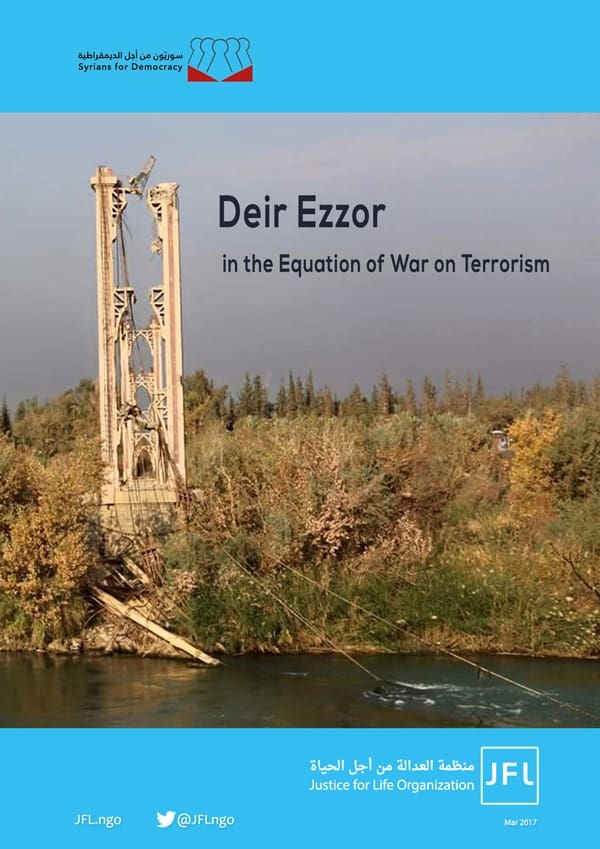Since the announcement of the Islamic State group of the Caliphate State in its held areas in Syria and Iraq, the situations in Syria became more complicated than before such announcement. The tone of “war against terrorism” emerged simultaneously as a prominent political headline in the area by the local, regional, and international powers. This headline affected the track and title of the Syrian revolution. It also misstated violations against humanity that were committed by local parties, “Syrian regime” at their head, regional ones, “Iran” on the top, and international ones that represented by Russia and the states of anti-terrorism coalition. It also influenced considerably on the regional and international balances and strategies in the middle east as the escalation of “Islamic State” group constituted an opportunity for the upsurge of international and regional powers that made the policy of war on terrorism as an umbrella to manage underlying conflicts and a headline for implementing invasive political projects in the middle east, and Syria in particular.
In the shed of the new and changing reality, Syria became linked with the conflict and rivalry of United States and Russia, geographically speaking, and with the dynamics and results of this conflict on the field level.
The Syrian territories were turned into areas of direct influence of regional and international powers, or throughout local allies. These competitive powers are holding contradictory tactical understandings as required by their objectives and the geographical areas of influence and within the limits of powers balance, directions and interests of the main two actors. It does not seem that the policies of the two main actors, United States and Russia, have reached a strategic agreement in terms of the Syrian issue in general. Despite the influence of the Russian role in the Syrian territories making use of the diminishing of the American one, and the vigorous pursuit for controlling the understandings about the different areas of influence, yet, Russia is waiting for the clarity if the new American trends, which probably will not make a fundamental and essential change in the short term in these territories, which are widely scattered socially, religiously, and ethnically. Therefore, the race towards the control and capturing new influence areas that promotes the international and regional projects in the Syrian territories through local allies will last to be imposed as a de facto on the form and nature of the future agreements and to gain as much as possible of political benefits.
Deir Ezzor province, in the context of political factors, static and dynamic, forms an important competition for international and regional powers that seek to include it in their influence areas as the province enjoys an influential geopolitical location along with the essential sources for managing the local conflicts. Under any circumstances, the impact of the war on terrorism in Iraq cannot be separated from the social and political situations in Syria, and Deir Ezzor in particular, due to the similarity of overlapping social and political conditions in the two countries. In this context, the form and nature of the understandings of Syrian and Iraqi local actors affect after the battles of “Mosul and Raqqa”.













